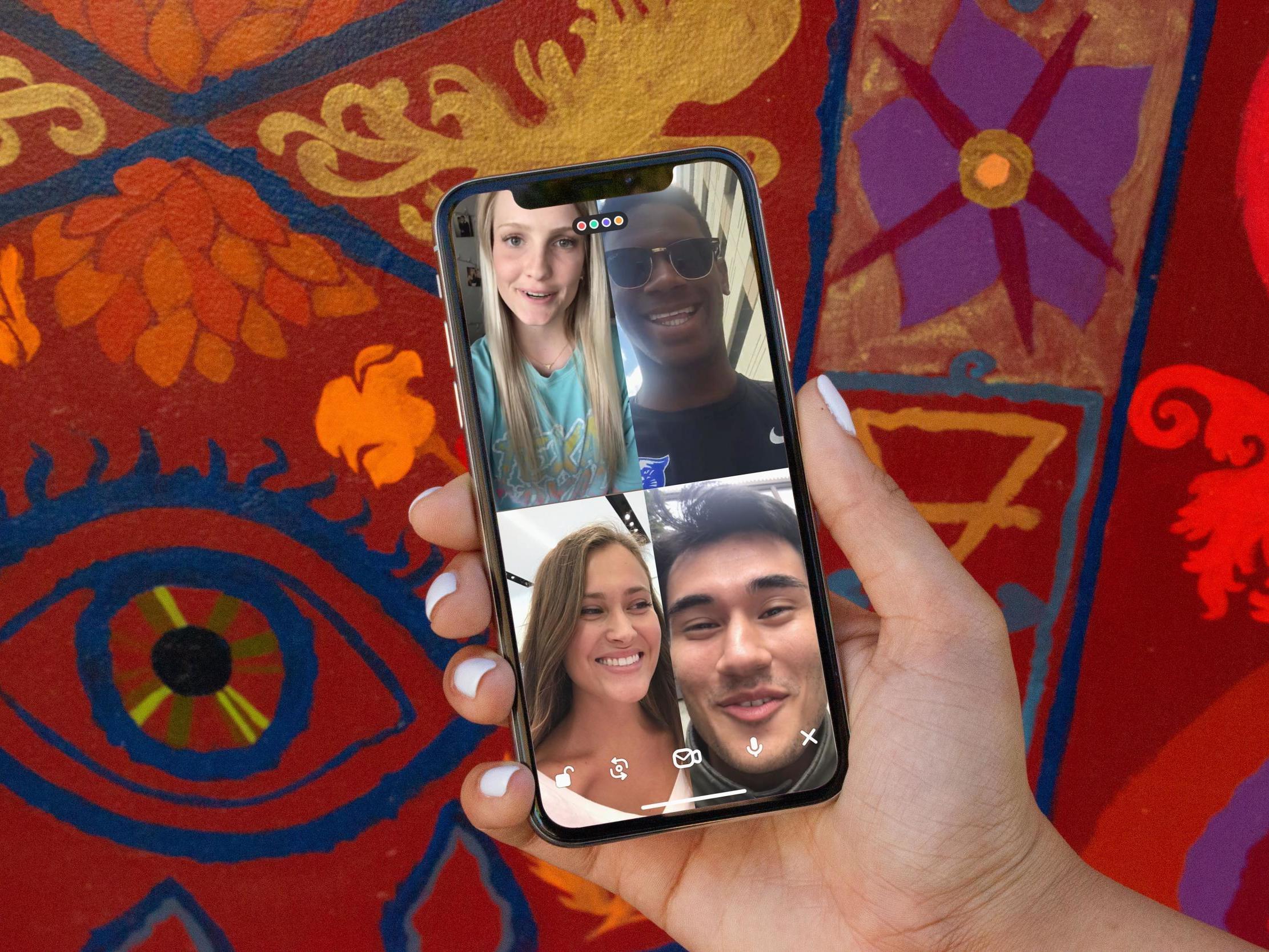Houseparty privacy: All the settings you need to fix before using the app
Stop telling people you’re in the house, and stop being bombarded by messages that other people are, too

Houseparty is surging in popularity, as people look for ways to keep up with family and friends during the coronavirus lockdown.
It’s something that anyone who is already on the app already knows, since it notifies all of a person’s friends when they sign up. It can be a fun feature for finding friends to chat to, but it can also very quickly become an irritating one if your phone keeps going off in your pocket.
The thing that really sets Houseparty apart from other apps is hinted at by its name. Anyone who’s friends with someone else in a chat can join – meaning that you’re likely to run into strangers – and it is not necessarily easy to lurk without being noticed.
Both features make the app prone to more surprising encounters than other more direct chat apps like FaceTime or Skype. But they can also very quickly make it a more annoying and confusing experience.
Thankfully there are easy ways to fix such problems: with a few changes of settings, and some important menus, you can make the app considerably less frustrating.
From the very moment you open Houseparty, you are on and live, and anyone can conceivably join you for a conversation. The app is built around this idea: opening the app is less like heading into a lobby and looking to call the person you want to meet, and more like wandering into a houseparty and waiting to see who might be hanging around and ready to talk.
That same structure applies to everyone you are chatting with, too, which can be anyone from your phone’s contacts, or your Facebook and Snapchat account. You might be in a serious conversation with your colleagues, for instance, but without some changes your friend may be alerted and opt to join in that same chat, too.
So the first thing to note is that it is important to be careful with who you add on the app. More than with other apps, anyone you are friends with has the ability not just to see that you are online, but to interact with you without much warning, too.
But there appears to be no way of stopping people being notified when you first sign up. Though you’ll be able to deny their friend request if they send one, there’s not any easy way to ensure they don’t see the message and try and add you in the first place.
For the same reason, it is important to lock any conversation that you don’t want unexpected people jumping into. That’s done relatively easily, by clicking the little lock icon at the bottom of the chat once everyone you want to be online is available, but you need to remember to do that every time.
But perhaps the most important thing about the app is to fix the notifications that it sends out. As a user of Houseparty, you will both be sent plenty of notifications and have plenty of notifications sent about you – and both can be very annoying.
Thankfully, it’s easy enough to turn either of those notifications off. That’s done by opening the app and clicking the smiley face in the corner of the screen – there, you’ll see the option to “Manage Notificatications”, and clicking that gives you the ability to stop them being sent when you open the app or being sent to you when somebody else does the same.
On both Android and iOS, you can of course also simply switch off all Houseparty notifications entirely. But that will mean that you won’t even receive a notification if someone calls you, and you’ll still be sending out notifications to other people, too.
You can also change these settings on a per-person basis. If you scroll down a little on the notifications screen, you’ll see the option to “mute” or “ghost” any given person.
Ghosting them means that they won’t see when you come online, which might be useful for anyone who continually tries to join you when you don’t want them to. Muting somebody means you won’t get notifications when they come online, which might be a good setting for anyone who keeps logging on and making your phone buzz.
Perhaps the most hidden feature on Houseparty is also one of its most useful, too. If you hold down the app icon, you’ll get the option to “sneak in” to Houseparty, meaning that you’ll open it up and be on the app without sending a notification to everyone.
You will still be online, however, and can be joined like normal.
Join our commenting forum
Join thought-provoking conversations, follow other Independent readers and see their replies
Comments
Bookmark popover
Removed from bookmarks